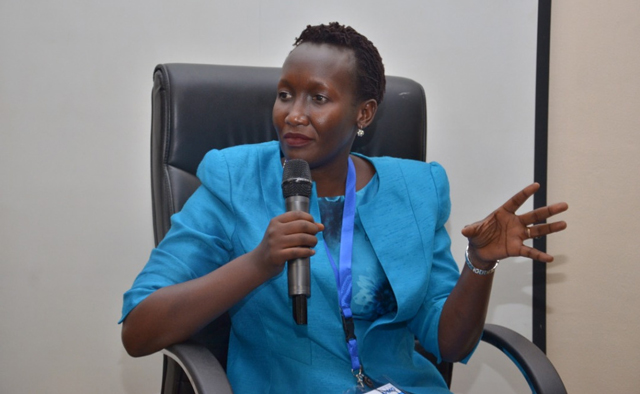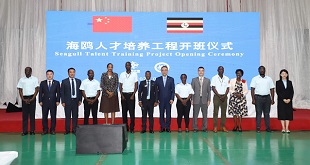
Kampala, Uganda | THE INDEPENDENT | The Uganda Communications Commission-UCC has commenced public consultations on the draft policy that guides the deployment and sharing of telecommunications infrastructure.
The UCC says individual establishment or deployment of infrastructure by the various communications sector players is one of the major factors behind the high cost of services.
These high costs also are transferred to the users in form of high prices, while they also slow down the growth of the sector.
Experts say for example, that the high cost of infrastructure is the reason for the limited expansion of the 4G Network away from the main cities to other parts of the country.
The UCC has given the sector stakeholders and the public 14 days to make submissions on the proposals.
In most parts of the country, few mobile phone sets can be 4G compliant, hence it would make no business sense to spend highly on an area where there are few prospective customers.
Apart from attempts to reduce the costs of service provision, infrastructure sharing also aims at reducing the concentration of facilities, especially masts in some areas.
There are some claims that the congestion increases the risks associated with the effects of radiation, which may in the long run affect the health of humans staying within that area.
The Uganda Communications Act of 2003 prohibits anyone from establishing an infrastructure facility without permission from the UCC. “Section 22 of the Act requires that a person shall not, establish a telecommunications station, provide telecommunications services or construct, maintain, or operate telecommunications apparatus without a licence issued by the Commission,” the law states.
Also, the guidelines give an obligation for a telecom company to allow another, even if it is a rival, to make use of the former’s infrastructure.
Last year, American Tower Company (ATC) bought Easton Towers and effectively took over the infrastructure-sharing business of Eaton in Uganda. It has more than 3,400 sites (masts) around the country and controls the biggest network.
UCC says that the construction, operation and maintenance of communications infrastructure are typically very costly, and the leasing of passive network infrastructure currently accounts for a significant portion of the overhead costs of a typical service provider in the sector.
Passive infrastructure refers to physical to non-electronic infrastructure like masts.
The National Broadband Policy of 2018 also noted that there is underutilisation of the optic fibre capacity on all the networks in Uganda due to telecom operators opting to use their infrastructure.
The Policy further notes that the duplication of optic fibre deployments translates into a high total cost of ownership for all communications infrastructure Operators, which is reflected in the high cost of bandwidth and ICT services generally.
“That there is need to have a comprehensive framework to facilitate coordination all Government interventions in the development of broadband infrastructure; and also to regulate the private sector to ensure sharing and complementarity of their broadband networks to avoid duplication in the deployment of the infrastructure”, the Policy says.
Accordingly, the Policy identifies as one of its strategies towards the objective of connectivity for all; to regulate, coordinate and harmonize the development, deployment and sharing of all broadband Infrastructure (both private and public) among all stakeholders.
Now, the Commission seeks to establish a framework that shall guide and foster the deployment and sharing of communications infrastructure in Uganda.
The aims of the guidelines include facilitating coordination and collaboration among the different stakeholders for joint construction, co-location, sharing, and access to existing networks and roll-out of new ICT infrastructure,
This will also lead to minimizing the amount and cost of civil works and associated socialcosts such as visual impacts, public nuisance, traffic congestion, and impacts on roads.
The telecom company owning a piece of infrastructure in an area shall also have an obligation to allow another company to utilize the same infrastructure or join in constructing it. “If the operator to whom the request is made refuses to comply with the request for co-construction from another operator without justification, or if the conditions for co-construction are not obtained within one (1) month after receipt of the request for co-construction, the requesting operator may refer the matter to the Commission,” the guidelines say.
The Commission also has the power to prohibit the application of these guidelines to a particular infrastructure-related project or a particular type of infrastructure. This is mainly where it is of the view that there is a risk of impacting competition or other public interest as a consequence of the sharing or deployment of the subject infrastructure.
“Every operator shall in a timely manner, accept a request from another duly licensed operator for co-construction of physical infrastructure or a communications network on fair and reasonable terms,” the guidelines say, adding that the cost of construction shall be shared by the parties.
This has an exception where a joint project increases the costs compared to separate or individual construction or endangers network security or the use of the network for its intended purpose. However, one can reject the request to be joined, due to technical or other reasons, which will have to be verified by the authority.
“Where an operator refuses to provide access to its infrastructure on grounds of technical infeasibility, such claims shall be subject to independent verification by the Commission on a case-by-case basis including inspection of the relevant facilities to verify the claims”, the guidelines say.
UCC says it will not license or clear a sharing agreement that may endanger competition and life and safety, or whichis against public interest or compromises national security.
********
URN
 The Independent Uganda: You get the Truth we Pay the Price
The Independent Uganda: You get the Truth we Pay the Price


